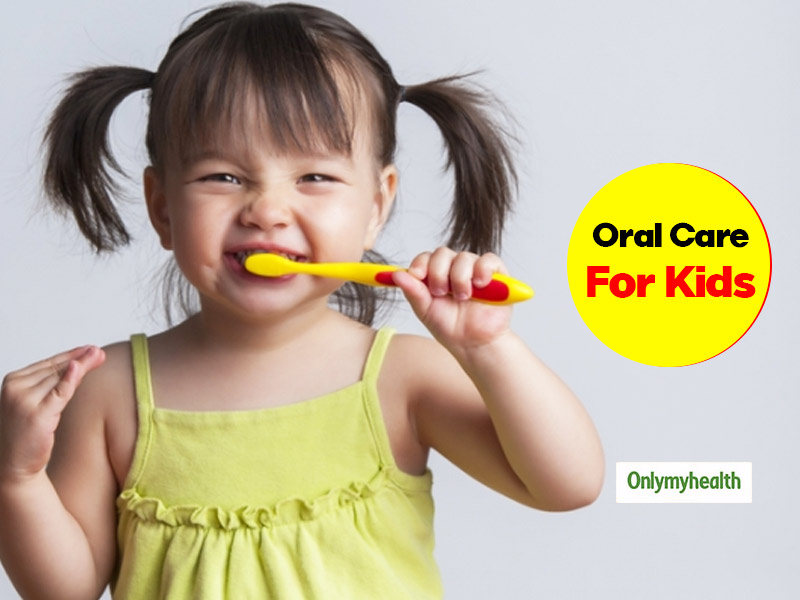
Teeth can last more healthily if you take care of them right, and the best time to start is as soon as they begin appearing by having good oral hygiene for your kids. The most common chronic disease in children would be cavities( also known as caries or tooth decay). If not treated, they may lead to problems with eating, speaking, playing and learning. This is an infectious disease caused by bacteria. It can form a cavity, causing discomfort, but this can be prevented. Parents often don’t pay attention and assume that cavities won’t matter as they will lose the teeth anyway. But this isn’t true, Dental decay in baby teeth can affect permanent teeth and lead to future dental problems.
Table of Content:-

Also Read: No Wires And No Pain, Dr Gupta Says To Opt For Invisible Braces Over The Conventional Ones
Teaching Good Habits
To start teaching your kids, proper hygiene is to provide them with good dental habits. With this, they will adopt good oral hygiene as a part of his daily routine. Being a parent, you’ll need to supervise and help him so that they clean their teeth properly and remove all the plaque, the soft, sticky, bacteria-containing deposits that get accumulated on the teeth, causing tooth decay.
Oral Hygiene for Children
When your child develops teeth, you should help your child brush her teeth two times a day with fluoride toothpaste on a brush applicable for the child that has soft bristles. The toothbrushes are designed for children of all ages, ensuring that you can select a toothbrush appropriate for your child. If your kid is just 3, They have primary teeth so start using a pea-sized amount of fluoride toothpaste, which is enough to prevent cavities. Teach your kids not to swallow the fluoride toothpaste as they can make white or brown spots on your child’s adult teeth. At 6 their baby teeth will start falling out, and that’s when the permanent teeth start coming by the age of 13 they will establish oral hygiene as that is the time they will be thinking about their appearance of the teeth.

Motion for Brushing
You might be confused about whether the best brushing motion is up and down, back and forth, or in a circular motion. The truth is that directions do not matter. It is important to clean the top and bottom, inside and out. Often the child will concentrate on only the front teeth that they can see and will resist the back of the teeth. A child about six to eight years old would not brush his teeth without the help or supervision of an adult. So teach them and do the actual brushing if necessary. Help your child brush and floss. Visit the dentist regularly to ensure they don’t have any cavity. Once your kid starts getting permanent teeth.
Also Read: 5 Tips On How Early Introduction Of Peanuts in Babies Can Reduce The Risk Of Allergies
Avoid too Much Sugar

Besides brushing their teeth regularly with the right amount of fluoride toothpaste, the child’s diet will play a vital role in their dental health. The more your kids’ teeth are exposed to sugar; the higher is the risk of cavities. Few sticky sugar foods like sticky caramel, toffee, gum, and dried fruit that stays in their mouth for hours could do damage.
- Tips to keep your child’s hygiene on track
- Please encourage them to keep their oral care good as this is important.
- Remind them to brush their teeth twice a day with fluoride toothpaste for 2 minutes every day as this will help in fighting cavities and strengthening teeth.
- Tell them the importance of flossing
Read more articles on Children’s Health
How we keep this article up to date:
We work with experts and keep a close eye on the latest in health and wellness. Whenever there is a new research or helpful information, we update our articles with accurate and useful advice.
Current Version
